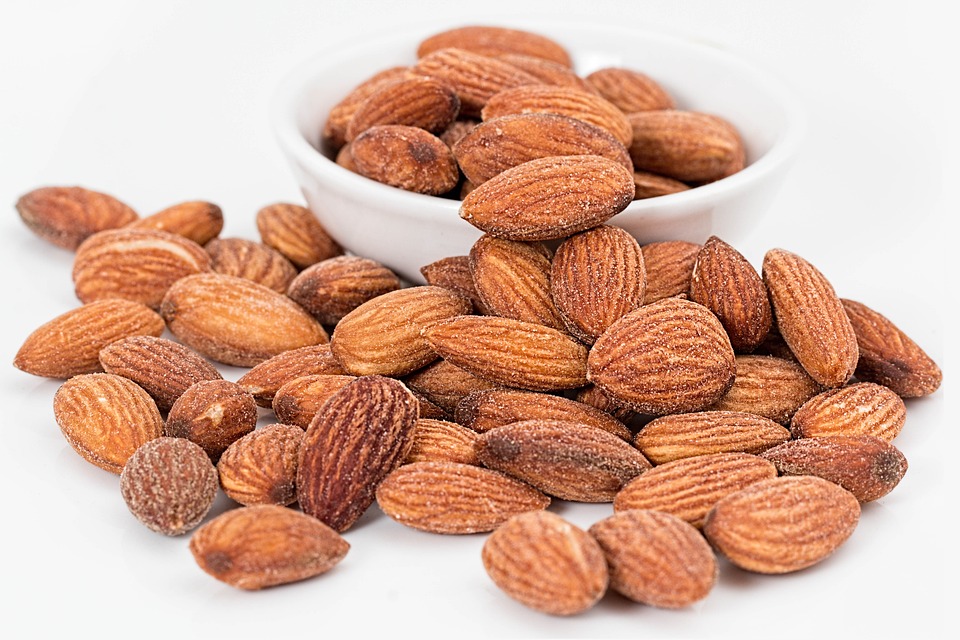gastric sleeve Surgery: A Comprehensive Guide in Spanish
In recent years, Gastric sleeve surgery has become increasingly popular as a treatment option for individuals struggling with obesity. also known as sleeve gastrectomy, this procedure involves removing a portion of the stomach to reduce its size and limit the amount of food that can be consumed.
At (clinic name), we specialize in offering Gastric Sleeve surgery to our Spanish-speaking patients. Our team of experienced surgeons and medical professionals are dedicated to providing top-quality care and support throughout the entire process. In this article, we will delve into the details of Gastric Sleeve surgery in Spanish, including its benefits, risks, and what to expect before and after the procedure.
The Benefits of Gastric Sleeve Surgery
Gastric Sleeve surgery offers a variety of benefits for individuals struggling with obesity. By reducing the size of the stomach, this procedure helps patients feel full faster and eat less, ultimately leading to weight loss. Additionally, Gastric Sleeve surgery has been shown to improve or resolve obesity-related conditions such as type 2 diabetes, high blood pressure, and sleep apnea.
Furthermore, Gastric Sleeve surgery is a minimally invasive procedure that can typically be performed laparoscopically, resulting in smaller incisions, less pain, and faster recovery times. This makes it an attractive option for individuals looking to achieve significant weight loss and improve their overall health.
Risks and Considerations
While Gastric Sleeve surgery is generally safe and effective, it is important for patients to understand the potential risks and considerations associated with the procedure. Some of the risks of Gastric Sleeve surgery include infection, bleeding, blood clots, and complications related to anesthesia. Additionally, patients may experience side effects such as nausea, vomiting, and acid reflux in the weeks following surgery.
It is crucial for individuals considering Gastric Sleeve surgery to discuss these risks with their healthcare provider and carefully weigh the potential benefits against the potential complications. Our team at (clinic name) is committed to providing thorough education and counseling to ensure that our patients are well-informed and prepared for their surgical journey.
Preparing for Gastric Sleeve Surgery
Prior to undergoing Gastric Sleeve surgery, patients will need to undergo a comprehensive evaluation to determine their eligibility for the procedure. This evaluation may include medical tests, consultations with healthcare providers, and discussions about lifestyle changes that will be necessary post-surgery.
In the weeks leading up to Gastric Sleeve surgery, patients will be advised to follow a pre-operative diet and make lifestyle modifications to prepare their bodies for the procedure. This may include reducing calorie intake, increasing physical activity, and quitting smoking if applicable. Our team at (clinic name) will provide guidance and support throughout this preparation process to ensure that our patients are well-prepared for surgery.
Recovery and Aftercare
Following Gastric Sleeve surgery, patients will need to adhere to a strict post-operative diet and lifestyle regimen to promote healing and maximize weight loss. This may include consuming liquids and pureed foods in the initial weeks after surgery, gradually transitioning to solid foods as tolerated.
Patients will also need to attend follow-up appointments with their healthcare provider to monitor their progress, address any concerns, and make adjustments to their diet and exercise plan as needed. Our team at (clinic name) is dedicated to providing ongoing support and guidance to our patients throughout their recovery journey to ensure optimal outcomes.
conclusion
In conclusion, Gastric Sleeve surgery is a safe and effective treatment option for individuals struggling with obesity. By reducing the size of the stomach, this procedure helps patients achieve significant weight loss and improve their overall health. While there are risks and considerations associated with Gastric Sleeve surgery, our team at (clinic name) is committed to providing top-quality care and support to ensure that our Spanish-speaking patients have a successful surgical experience.
If you are considering Gastric Sleeve surgery, we encourage you to schedule a consultation with our experienced team at (clinic name) to learn more about this life-changing procedure. We are here to support you every step of the way on your journey to improved health and well-being.
Frequently Raised Concerns Regarding Gastric Sleeve Spanish
What is Gastric Sleeve Surgery?
Gastric sleeve surgery, also known as sleeve gastrectomy, is a surgical procedure in which a large portion of the stomach is removed, leaving a smaller, sleeve-shaped stomach. This smaller stomach restricts the amount of food a person can eat, leading to weight loss. The procedure is typically performed laparoscopically, using small incisions and a camera for guidance.
– Removes a large portion of the stomach
– Restricts the amount of food a person can eat
– Leads to weight loss
Who is a Candidate for Gastric Sleeve Surgery?
Candidates for gastric sleeve surgery are usually individuals who have been unable to lose weight through diet and exercise alone and have a body mass index (BMI) of 40 or higher, or a BMI of 35 or higher with obesity-related health conditions such as diabetes or high blood pressure. It is important for candidates to have a thorough understanding of the risks and benefits of the procedure and be committed to making lifestyle changes post-surgery.
– BMI of 40 or higher, or BMI of 35 or higher with obesity-related health conditions
– Unable to lose weight through diet and exercise alone
– Committed to making lifestyle changes post-surgery
What are the Benefits of Gastric Sleeve Surgery?
Gastric sleeve surgery has been shown to be an effective tool for weight loss, with many patients experiencing significant and sustained weight loss following the procedure. In addition to weight loss, gastric sleeve surgery can also lead to improvements in obesity-related health conditions such as diabetes, high blood pressure, and sleep apnea. The procedure is minimally invasive and has a relatively quick recovery time compared to other weight loss surgeries.
– Effective tool for weight loss
– Improvements in obesity-related health conditions
– Minimally invasive with quick recovery time
What are the Risks and Complications of Gastric Sleeve Surgery?
Like any surgical procedure, gastric sleeve surgery carries risks and potential complications. These can include infection, bleeding, blood clots, leakage from the surgical site, and reactions to anesthesia. In addition, there is a risk of long-term complications such as vitamin deficiencies and gastrointestinal issues. It is important for patients to discuss these risks with their healthcare provider and follow their post-operative care instructions closely.
– Infection, bleeding, blood clots
– Leakage from the surgical site
– Long-term complications such as vitamin deficiencies
What is the Recovery Process Like After Gastric Sleeve Surgery?
The recovery process after gastric sleeve surgery can vary from person to person, but most patients can expect to stay in the hospital for 1-2 days after the procedure. During the first few weeks post-surgery, patients will need to follow a liquid or pureed diet before gradually transitioning to solid foods. It is important for patients to attend follow-up appointments with their healthcare provider and adhere to their recommended diet and exercise plan to ensure a successful recovery and weight loss.
– Hospital stay of 1-2 days
– Liquid or pureed diet post-surgery
– Follow-up appointments and adherence to diet and exercise plan
1. Gastric Sleeve is a quick fix for weight loss
One common Misconception about Gastric Sleeve surgery is that it is a quick fix for weight loss. While the procedure can help individuals lose a significant amount of weight, it is not a magic solution.
2. Gastric Sleeve is an easy way out
Another misconception is that undergoing Gastric Sleeve surgery is an easy way out of weight loss. In reality, the surgery requires commitment to lifestyle changes and ongoing maintenance to achieve long-term success.
3. Gastric Sleeve is only for people who are extremely overweight
Some people believe that Gastric Sleeve surgery is only for individuals who are extremely overweight. However, the surgery is also an option for those who are moderately overweight and have struggled to lose weight through other methods.
4. Gastric Sleeve is a dangerous procedure
There is a misconception that Gastric Sleeve surgery is a dangerous procedure with high risks. While all surgeries carry some level of risk, Gastric Sleeve is generally considered safe when performed by a qualified and experienced surgeon.
5. Gastric Sleeve means you can eat whatever you want
Lastly, some individuals believe that undergoing Gastric Sleeve surgery means they can eat whatever they want without consequences. In reality, maintaining a healthy diet and portion control are essential for long-term success after the surgery.
Overall, it is important to dispel these common misconceptions about Gastric Sleeve surgery to ensure individuals have a realistic understanding of what the procedure entails and what it can achieve.
Gastric Sleeve Spanish
#manga #gástrica #procedimiento #quirúrgico #reduce #tamaño #del #estómago #forma #manga #para #ayudar #controlar #ingesta #alimentos #promover #pérdida #peso #También #conocido #como #gastrectomía #vertical #este #procedimiento #una #opción #para #las #personas #con #obesidad #grave #han #intentado #sin #éxito #perder #peso #través #dietas #ejercicio #manga #gástrica #suele #ser #menos #invasiva #otras #cirugías #bariátricas #puede #llevar #una #pérdida #peso #significativa #largo #plazo #importante #hablar #con #médico #para #determinar #manga #gástrica #mejor #opción #para #discutir #los #posibles #riesgos #beneficios #del #procedimiento

